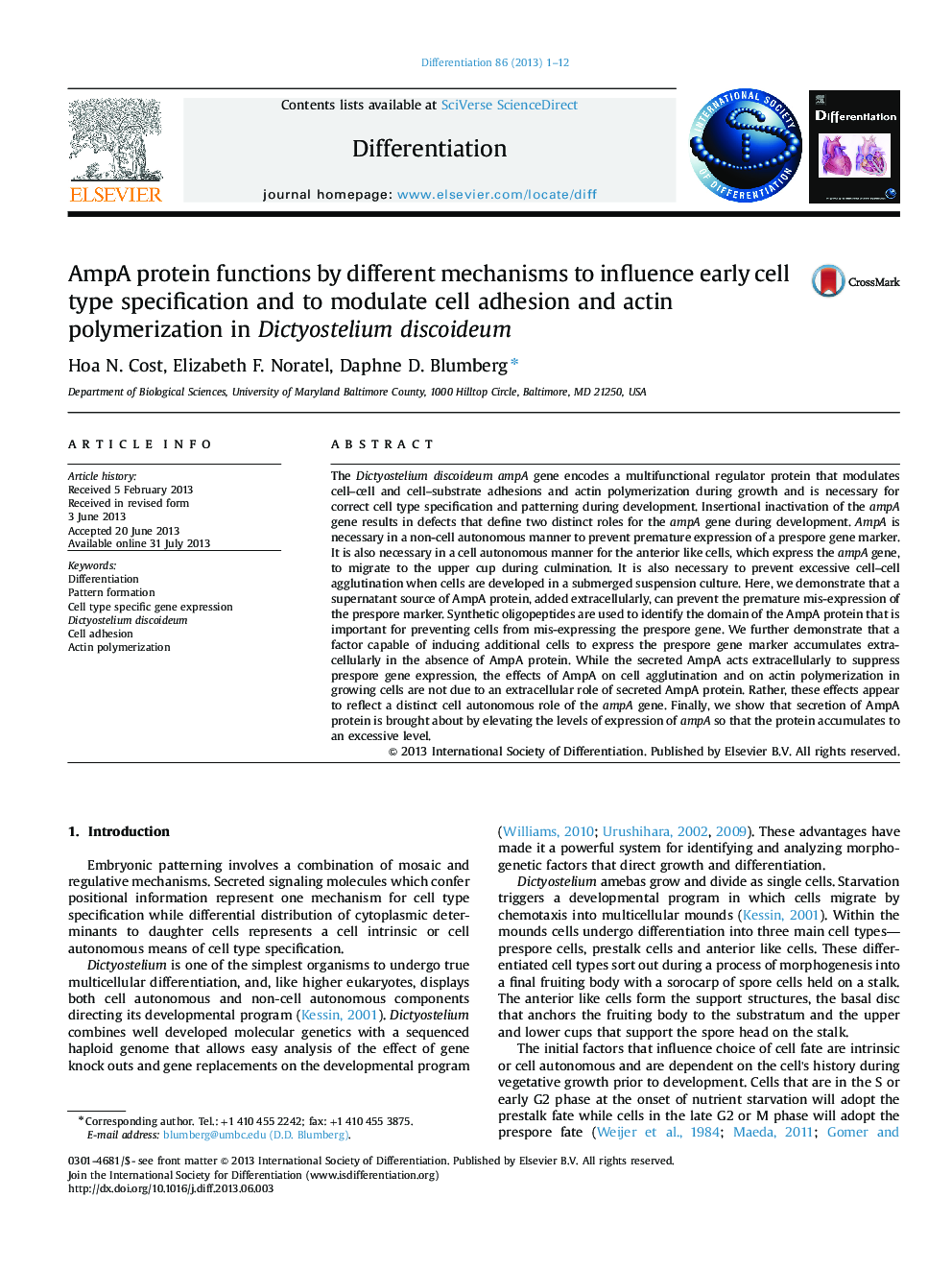| Article ID | Journal | Published Year | Pages | File Type |
|---|---|---|---|---|
| 2119437 | Differentiation | 2013 | 12 Pages |
•AmpA regulates cell adhesion, actin polymerization and developmental patterning.•Extracellularly it acts to block prespore gene expression in prestalk cells.•Loss of AmpA causes accumulation of a prespore gene inducing factor.•Developmental secretion of AmpA is controlled by AmpA expression levels.•AmpA acts cell autonomously to control cell adhesion and actin polymerization.
The Dictyostelium discoideum ampA gene encodes a multifunctional regulator protein that modulates cell–cell and cell–substrate adhesions and actin polymerization during growth and is necessary for correct cell type specification and patterning during development. Insertional inactivation of the ampA gene results in defects that define two distinct roles for the ampA gene during development. AmpA is necessary in a non-cell autonomous manner to prevent premature expression of a prespore gene marker. It is also necessary in a cell autonomous manner for the anterior like cells, which express the ampA gene, to migrate to the upper cup during culmination. It is also necessary to prevent excessive cell–cell agglutination when cells are developed in a submerged suspension culture. Here, we demonstrate that a supernatant source of AmpA protein, added extracellularly, can prevent the premature mis-expression of the prespore marker. Synthetic oligopeptides are used to identify the domain of the AmpA protein that is important for preventing cells from mis-expressing the prespore gene. We further demonstrate that a factor capable of inducing additional cells to express the prespore gene marker accumulates extracellularly in the absence of AmpA protein. While the secreted AmpA acts extracellularly to suppress prespore gene expression, the effects of AmpA on cell agglutination and on actin polymerization in growing cells are not due to an extracellular role of secreted AmpA protein. Rather, these effects appear to reflect a distinct cell autonomous role of the ampA gene. Finally, we show that secretion of AmpA protein is brought about by elevating the levels of expression of ampA so that the protein accumulates to an excessive level.
